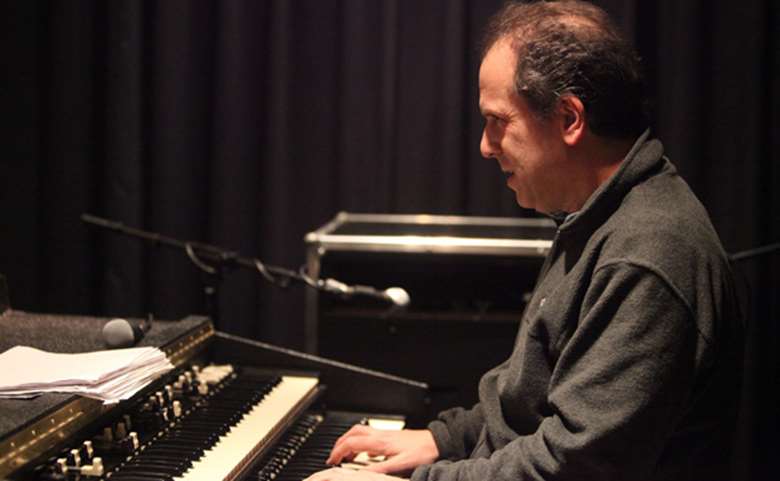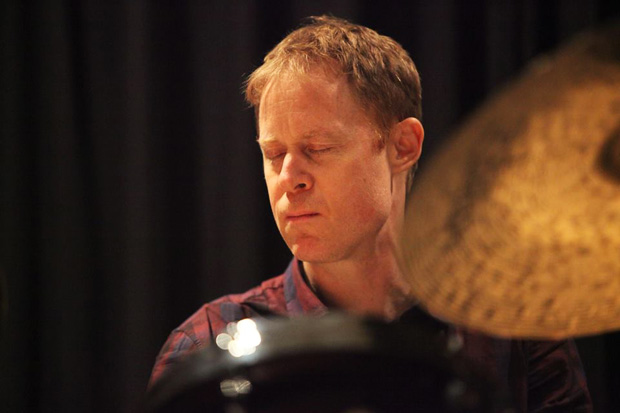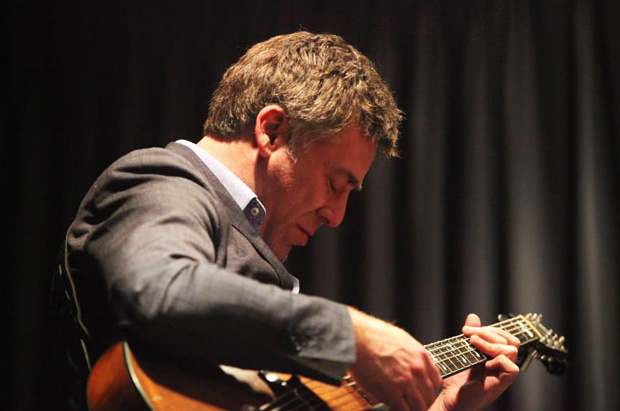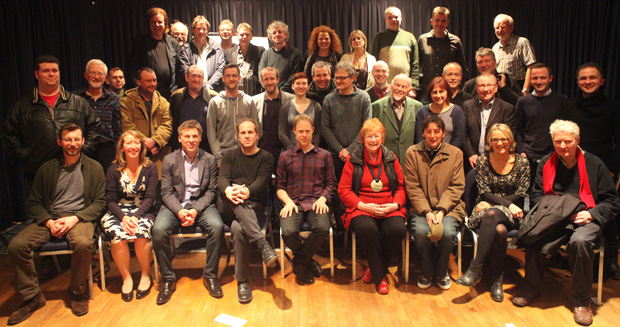Larry Goldings, Bill Stewart and Peter Bernstein get Watermill Jazz grooving
Wednesday, January 28, 2015
From the opening tap of dry ride cymbal and warm, fluid guitar aloft some busy B3, lucky holders of this, the Watermill's most trumpeted ticket to date, were, at once, entranced by the emotive, almost telepathic interplay of this master trio.

Over for a run of four shows to promote last year's Ramshackle Serenade disc, the US-based band were tonight elevated to the club's main stage (normally concealed by curtains and reserved for big band orchestras), and eased in with a breezy reading of Duke Pearson's ‘Chant’. The low-end growl of Goldings' organ here may have had its sights on swallowing the whole hall, but its percussive punch in the higher register beautifully complimented Bernstein's spacious guitar, and sealed the gaps between some snappy fours from drummer Bill Stewart (below).

An early highlight of the night was Goldings' ‘Jim Jam’, a tribute to his former leader Jim Hall, which raised the tempo and proved a perfect springboard for Bernstein's fast-fingered fretwork. Recalling Hall's unique phrasing, and subtle pick style, Bernstein would also deploy greasy blues riffs, adding weight to a solo he would slowly build across the tune's lengthy outro.
When the piece did eventually end, and the front row's ovation for Bernstein's solo was hushed, a church-like rush of reedy organ pricked the silence, spilling across the stage. This stunning, isolated introduction to Ellington's ‘All Too Soon’ may have been, as the title suggests, hastily embellished with busy accompaniment, but when Stewart and Bernstein joined Goldings to drive home the bluesy ballad, it was a moment to behold.
The groovy ‘Mr. Meagles’ was another staple of the set; with its latin feel forming a funky bed onto which all three could really stretch out. Remaining firm and blues-based, Bernstein'smelody throughout was ruffled only by the clatter of Stewart's tom fills, his fancy foot work on hi-hat and a scattergun solo from Goldings that would swerve the band back to the main theme, and towards a deft fade-out to a full stop.

Elsewhere, more audacious drumming would fire up Bernstein waltzer ‘Jive Coffee’, but it was the intro to the trio's penultimate piece, Cole Porter's ‘Everytime We Say Goodbye’ that stirred real scenes of joy around the room. Slow and understated, and fixed to pulse once more governed by Goldings' bass pedals, the song's memorable melody was gently picked out on guitar, swept along by the faint swish of brushes and piercing whistle from Larry's vintage Leslie speaker.
Wrapping up the night with unannounced bossa, Goldings' response to all the roars for more was to joke that they didn't know any more tunes, but they delivered one encore, ‘Gee Baby, Ain't I Good to You’. Stripped back and sassy, Don Redman's classic not only managed to encapsulate many musical traits of this trio, but emphasize how a hot mix of sensitivity, instinct and solid swing from three leaders in a small humble jazz club, can so magnificently move a room.
As a footnote to the night – and with echoes of the iconic photo 'A Great Day In Harlem' and Terrence Donovan's 'A Great Day In Trafalga Square' – a small army of leading British jazz musicians came to the gig as well, captured here by photographer Jon Frost (see caption below for names):

Front Row, Left to Right: Dave Warren, Kathryn Shackleton, Peter Bernstein, Larry Goldings, Bill Stewart, Ann Odell, Nat Lambson, Imogen Ryall and Dave Cliff.
Second Row, Left to Right: Nat Steele, Paul Hobbs, Pete Whittaker, Gary Wilcox, Dave Barry, Robbie Robson, John Turville, Josephine Davies, Paul Whitten, Terry Seabrook, Andy Trim, John Critchinson, Kate Williams, Alec Dankworth, Stan Sulzmann, Bobby Worth, Ross Stanley and Dylan Howe.
Back Row, Left to Right: Pete Cater, Steve Wetherall, Phil Hopkins, Iain Sutcliffe, Nigel Price, Dorian Lockett, Janette Mason, Andrea Vicari, Shane Hill, Matt Home and Roger Hind
– Review by Mark Youll
– Photos by Jon Frost